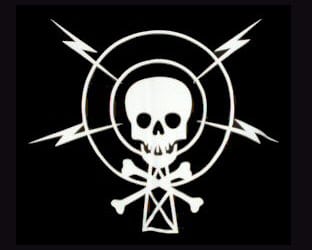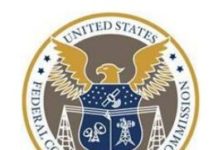The first proposed fines under the federal Preventing Illegal Radio Abuse Through Enforcement Act (PIRATE Act) have been handed to a pair of alleged pirate radio operations by the FCC, with two Hispanic men potentially liable for the maximum penalty allowable by law.
Enforcement of the forfeiture, however, remains a key question. In North Miami, Fla., a notorious unlicensed FM operation was still on the air despite being handed a steep fine.
The bigger of the two PIRATE Act-era Notices of Apparent Liability for Forfeiture sees individuals César Ayora and Luis Angel Ayora being handed a $2,316,034 proposed fine for pirate radio broadcasts in the City of New York borough of Queens.
The second sees Thomas Barnes receive a $80,000 NALF for an unlicensed radio operation in La Grande, Ore., a rural community between Portland and Boise.
While La Grande is a far cry from Queens, pirate radio broadcasts cause “harmful interference” to licensed radio stations regardless of locale.
Pirate radio broadcasts have been a concern for a quarter-century, with South Florida, the New York Tri-State Area and Boston the three markets experiencing most of the unlicensed activity. It has its defenders, namely those who claim these unlicensed operations offer underserved multicultural communities a voice. Still, their unlicensed nature makes them a nuisance, rather than a needed community void filler.
Enforcement of forfeitures against individuals found to be unlicensed radio operators has been difficult, if not impossible, in some circumstances.

Polynice Fabrice is believed to be ignoring a then-maximum forfeiture of $144,344 handed to him by the Commission by continuing to periodically use the 90.1 MHz signal for his “Radio Touche Douce,” targeting Haitian-American communities in Miami. The operation could be heard in the City of Miami as recently as mid-January 2023.
The FCC handed Fabrice the fine in July 2018.
To enhance enforcement capabilities against pirate broadcasters, Congress in January 2020 enacted the PIRATE Act.
This authorized inflation-adjusted maximum penalties of $2,316,034, which the two men in Queens must pay or successfully contest.
Importantly, the PIRATE Act requires the FCC to conduct periodic enforcement sweeps and grants the Commission authority to take enforcement action against landlords and property owners that willfully and knowingly permit pirate radio broadcasting on their properties.
It’s not so simple, however. In the case involving Fabrice, it is believed that seizure of equipment and the involvement of U.S. Marshals or other authorities presents Enforcement Bureau agents with safety risks.
A KILLER FINANCIAL IMPACTO
César and Luis Angel Ayora were discovered to be the operators of a pirate radio station known as “Radio Impacto 2.”
It’s an unlicensed service at 105.5 MHz involving at least one individual that has been known to the Commission since President Obama was in the White House.
The FCC previously issued Luis Angel Ayora a $20,000 forfeiture in 2015, which he did not pay. In 2016, the U.S. Marshals Service executed a warrant in rem and seized the Ayoras’ broadcasting equipment. That didn’t stop Ayora from eventually going back on the air without a FCC license. And, “Radio Impacto 2” was brazen about it, even showing video of their broadcasts on Facebook.
As part of their PIRATE Act investigation, Enforcement Bureau Agents found “scores” of apparent violations between March and September 2022, including multiple weekly on-air radio programs. The Ayoras even advertised their pirate radio station for no less than 25 weeks and continue to operate their unauthorized station, which bears the motto “The Official Radio Station of Ecuadorans in New York,” to date.
Advertisers as shown on the illegal radio station’s website include Allstate, Verizon Wireless, Queensboro Toyota, and even the New York State Department of Health, in promotion of COVID-19 vaccinations.
A MONIKER THAT SAYS IT ALL
In the Pacific Northwest, the $80,000 proposed forfeiture handed to Barnes is in response for his operation of a pirate radio station known as, ironically, “Pirate Radio Eastern Oregon.”
Barnes received multiple warnings notifying him that operating a pirate radio station is a violation of the Communications Act, but nonetheless he continued to engage in unauthorized radio broadcasting, the Commission says.
Barnes ceased operation on or before April 15, 2022, after the Bureau notified his landlord of the landlord’s potential liability under the PIRATE Act if pirate radio operations were to continue on the property.
While these are proposed actions, the ultimate fines each pirate is responsible for will likely be unchanged, given the situation. Still, it is a requirement of the FCC to allow those receiving the proposed forfeiture the chance to request a reduction or cancellation of the sought-after fine.




